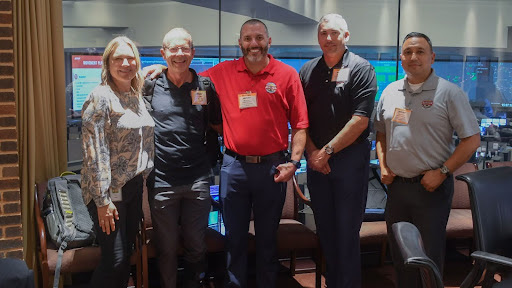
BARSTOW – BNSF Railway announced, August 13, that thousands of supporters voiced their opposition to the California Air Resource Board’s (CARB) In-Use Locomotive Regulation.
According to the Association of American Railroads, the regulation would require the implementation of zero-emission locomotives that would threaten the cancellation of a new $1.5 Billion BNSF rail facility – the Barstow International Gateway (BIG) project.
Supporters contacted elected officials and testified at public hearings
BNSF says if the regulation is adopted, these rules would mandate locomotive technology in California that doesn’t yet exist.
“Recognizing the importance of the jobs and economic growth the BIG project brings to Barstow and High Desert communities, thousands of you opposed CARB’s proposal this spring by contacting elected officials and testifying at public hearings,” said a statement in the BNSF newsletter.
The newsletter goes on to say that the city of Barstow is also working to ensure the BIG project’s benefits can come to fruition.
“The city council unanimously passed a resolution, and city officials traveled to Sacramento to advocate against the regulations and in favor of the BIG project,” said the newsletter.
Prohibits locomotives with engine build dates 23 years and older
CARB says the In-Use Locomotive Regulation, finalized last year, will achieve emission reductions that will reduce health risk associated with exposure to toxic and criteria pollutants, help meet federal air quality standards, and support the greenhouse gas (GHG) reduction goals of California.
Locomotive operators are required to fund a Spending Account (SA) based on the public health costs to Californians from locomotive emissions and activity levels. Locomotive operators may use funds held in the SA to purchase cleaner locomotive technologies.
In addition, the regulation would prohibit locomotives with engine build dates 23 years and older from operating in California starting in 2030.
Burdens on railroads both in California and nationally
The Association of American Railroads says due to the regulation, the cost of goods movement through California would increase to the point of being non-competitive, shifting cargo to other ports outside the state.
They say ultimately the regulation will result in shifting freight from rail — the most efficient way to move goods over land — to trucks, increasing highway congestion.
BNSF says despite the outpouring of support, there is currently no set timeline for when they will learn the outcome of their advocacy on CARB’s regulation.
For more information about the Barstow International Gateway project visit https://bnsfbig.com/

